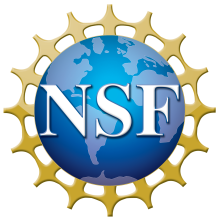The purpose of the ELOKA Advisory Committee is to help guide and advise on ELOKA activities. The Advisory Committee has six members, made up of experts and leaders working with Arctic communities and in the fields of community-based research, data management technologies, and Traditional Knowledge (TK). The committee met in person once per year for three years (2013, 2014, and 2015). Annual meetings were two days long and held in a major center in either the U.S. or Canada. Between annual meetings, the advisory committee was asked to communicate with the ELOKA team via email and file sharing programs. The meetings were designed to accomplish the following:
- Provide general advice on ELOKA's current work providing data management services for TK and Community-Based Monitoring (CBM) projects
- Provide insight into the latest directions in other TK and CBM activities in and outside of the Arctic, allowing ELOKA to stay informed and potentially support broader issues and initiatives
- Advise on existing and developing technologies that can contribute to ELOKA data management services
2015 EAC Meeting
22 to 24 September 2015
University of Colorado
Boulder, Colorado, USA
Since 2013, the ELOKA Advisory Committee has convened three times and within this time period the committee has provided a unique perspective in regards to stewarding and managing Indigenous knowledge. The final EAC meeting was held in Boulder, Colorado, on the University of Colorado campus. Known as the Sharing Knowledge workshop, ELOKA invited Arctic partners, Elders, and youth participants to Boulder to present and discuss their experiences using new technologies for sharing and transferring knowledge. Participants also discussed how to better represent Indigenous voices in knowledge documentation, data management, and cyber infrastructure.
The three-day workshop featured speakers, media demos, and dynamic workshop sessions, which included games from the North that facilitated cross-cultural exchange and discussion. The workshop provided a voice into how Arctic youth are sharing learned knowledge and how traditions, such as the importance of storytelling, are still viable in maintaining the knowledge exchange. A collective draft statement was developed to be presented at the Second Polar Data Forum (PDF II), emphasizing the unique contributions and needs of Indigenous Knowledge in international polar data management.
- Statement from the Sharing Knowledge: Traditions, Technologies, and Taking Control of our Future Workshop: Indigenous Knowledge: Key Considerations for Polar Data Planning
2014 EAC Meeting
3 to 7 November 2014
Oglala Lakota College
Kyle, South Dakota, USA
The EAC held its November 2014 meeting in Kyle, South Dakota, at the Pejuta Haka College Center on the Pine Ridge Indian Reservation, home to the Oglala Lakota Sioux Tribe. Established during the 1868 Fort Laramie Treaty, Pine Ridge Reservation spans a territory of approximately two million acres of the Northern Great Plains in southwest South Dakota. Pine Ridge Reservation is the eighth largest reservation in the United States. The reservation is part of the mixed grass prairie, an ecological transition zone between the short-grass and tall-grass prairies; all are part of the Great Plains. Many grassroots efforts are in place working to reclaim and consolidate tribal lands and access the resources needed for the Lakota people to live on. One such project is the Buffalo Restoration project, which aims to restore the traditional ecology, economy, and culture surrounding the buffalo. Pine Ridge is the homeland of EAC Member Jhon Goes In Center.
EAC members at the November 2014 meeting included Carolina Behe and Lewis Brower (Alaska), Peter Pulsifer and Heidi McCann (ELOKA), and Dennis Yellow Thunder and Mike Catches Enemy of the Oglala Lakota Tribal Historic Preservation Office. Shari Gearheard (ELOKA Co-PI) and Scot Nickels (Director of Inuit Qaujisarvingat) participated via Skype. Productive dialogue involved how best to move forward with ELOKA. Two members of the Oglala Lakota Tribal Historic Preservation office also participated (Dennis Yellow Thunder and Mike Catches the Enemy), offering their tribal perspective with regard to managing data. Key topics revisited from the first EAC meeting in 2013 featured: clarification to the meaning of "community-based monitoring" and Traditional Knowledge with respect to ELOKA; how to appropriately represent Indigenous knowledge information systems and other contexts; impacts of new technologies and linkage to education; and training initiatives for community members.
2013 EAC Meeting
18 and 19 September 2013
National Snow and Ice Data Center, University of Colorado, Boulder, Colorado, USA
Full EAC Meeting Report
EAC Meeting Program
CBM White Paper
The first ELOKA Advisory Committee took place in Boulder on September 18 and 19, 2013. Despite flooding a few days prior, three members of the committee were able to attend and participate in active dialogue. On the first day, discussions focused on ELOKA, member experiences, and perspectives relevant to the committee. The group reviewed existing priorities while identifying new ones. On the second day, discussions focused on community-based monitoring, the role ELOKA plays in facilitating such projects, and networking. See the meeting report for more information.
An outcome of the first meeting was a white paper on data management targeting the attention of the academic community.















